A Q&A with Carmen Adams, registered herbalist and community health nurse, on the insights that have gained her nearly a quarter of a million followers.

A Q&A with Carmen Adams, registered herbalist and community health nurse, on the insights that have gained her nearly a quarter of a million followers.
August 13, 2024
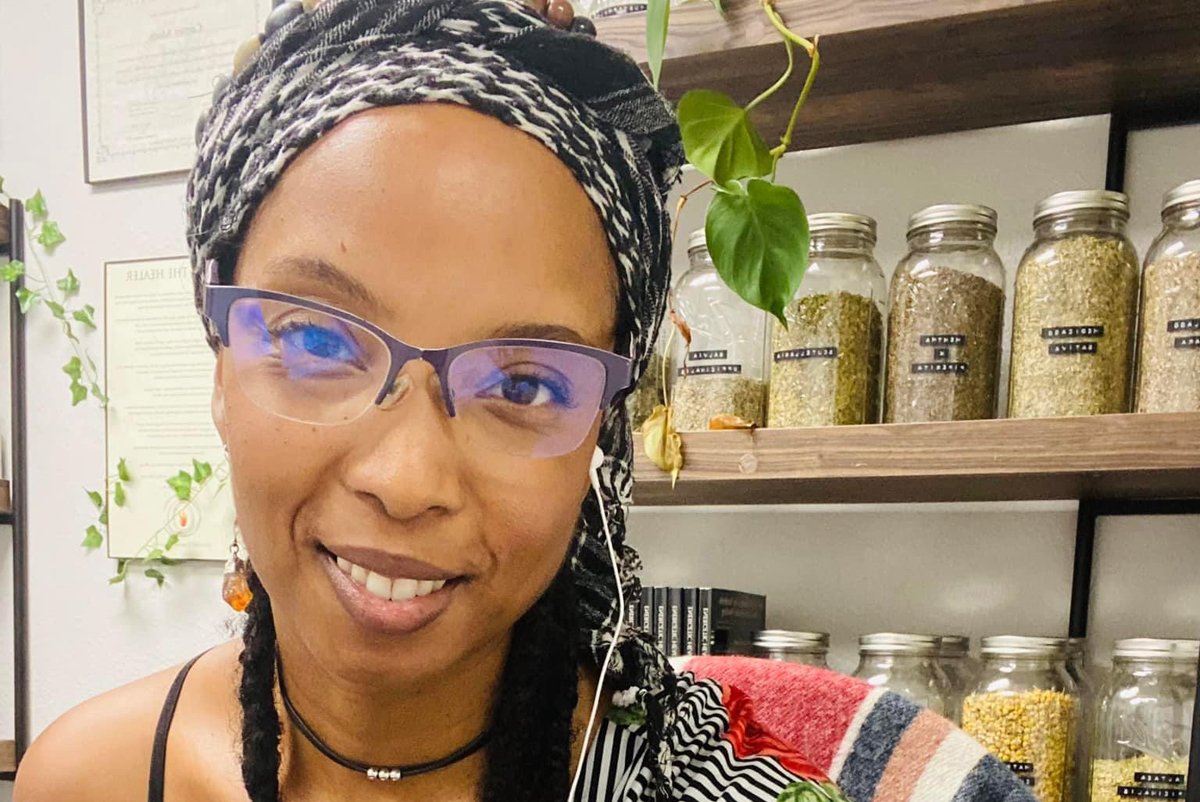
Carmen Adams is a registered herbalist, community health nurse, and founder of Innergy Med Group, a practice that provides wellness plans that integrate holistic and herbal solutions. (Photo courtesy of Carmen Adams)
Growing up in a Black American family, I was steeped in the wisdom of natural remedies passed down through generations.
My childhood memories include my grandmother making garlic tinctures, boiling ginger tea, and delivering spoonfuls of elderberry syrup to me when I was sick. When I had the flu, she’d put slices of onions in my socks to “pull the cold out.” If someone had cramps, she’d brew them a soothing cup of peppermint tea.
“Herbalism is a study of plants and their medicinal properties. However, when it comes to practicing herbalism, it’s an art.”
She had no formal training, but my grandmother knew to use eucalyptus for inflammation and licorice for digestion—and they worked. It wasn’t until I started taking classes to get my certificate in medicinal plants from Cornell University last year, starting my own herbalist journey, that I began to connect what I was learning with what my grandmother had already taught me.
But these traditions didn’t begin with her.
Traditional medicine, or folk medicine, was once the dominant medical system in Africa. During chattel slavery, enslaved Africans brought their knowledge of medicinal plants to America, adapting their practices to the new environment. This legacy of plant medicine has not only survived, but also has become an integral—and rarely credited—part of Black American culture.
In recent years, there has been a resurgence of interest in herbalism, including on platforms like TikTok, where #Blackherbalist and #AfricanHolisticHealth have garnered over 64 million combined views. This movement reflects a broader celebration of the resilience and ingenuity of our ancestors.
Carmen Adams is a Black herbalist registered with the American Herbalists Guild as well as a community health nurse and the founder of Innergy Med Group, a practice that provides wellness plans that integrate holistic and herbal solutions for her clients. She began her journey by studying herbalism and naturopathic medicine to heal her acne, digestive issues, weight gain, and anxiety. Now, after years of helping clients and mentoring aspiring herbalists, Carmen shares her insights and expertise with her 220,000 followers on TikTok, hoping to empower, educate and teach people how to advocate for their health.
I spoke to Adams about herbalism’s historic connection to Black American culture, how social media is giving the practice new life, and why Black Americans haven’t always received credit for their contributions.
How would you define an herbalist?
Herbalism is a study of plants and their medicinal properties. However, when it comes to practicing herbalism, it’s an art.
An herbalist consciously works with plants, whether they’re live, dried, or otherwise. Maybe you’re someone who [forages], so you’re out in nature and you’re picking them. Maybe you’re a farmer interacting with plants, but you’re doing so to extract their medicinal properties. An herbalist may be spending time with plants, whether it’s breathing with them, using them to purify the air, or consuming them to benefit your physical “meat suit.” That’s how I would describe an herbalist, because not everyone has to be in a clinical setting. Not everyone’s mind works that way, and I respect that as well.
Can you share your personal journey into medicinal plants?
I’ve always known I’d work in health care. While on the pre-med track, I began learning things that didn’t quite feel in alignment—different things in reference to pharmaceuticals and policies. I learned that I was pregnant; that was the biggest mental change. I knew there were certain aspects I wasn’t going to incorporate into my personal journey. It pushed me to ask, “What now? What did my ancestors do?”
I remember getting sick as a kid. I had a really bad stomach virus. My mom was in the kitchen, making something her brother used to make for her. It had onions, garlic, ginger, all kinds of stuff. It smelled horrible. I remember taking it, looking at her, running to the front door, and throwing up on the welcome mat. However, from that moment forward, I felt better.
So, I sought out herbalism. Back then, there weren’t many courses. There were different herbalists acting as mentors. I was privileged enough to have a mentor by the name of Dulce King. She was a lovely Dominican woman. . . . Her depth of knowledge was invaluable. I wanted to take her mind and just shake it into mine. That was the birth of my love of herbalism and teaching.
What inspired you to start sharing your knowledge on TikTok?
I’m not a social media person. My assistant felt that people would benefit from learning from me, even if they weren’t clients or mentees. I gave it a whirl, and it just took off.
I’m just sharing my two cents, and if it resonates, beautiful. If it doesn’t, it doesn’t. I started to learn the different misinformation that was out there because it’s so easy to make money . . . I feel sometimes people can get a little drunk on that, which could cause them to overpromise a product that’s going to underdeliver, at best. I wanted to make sure that I share that herbs are [simply] a tool.
In my practice, sometimes we don’t even mention an herb. People may just need a place to vent or feel safe. Their inner dialogue was causing the nausea and anxiety; the peppermint tea wasn’t needed.
Some people use TikTok as an alternative to Google, so it’s important for people to disseminate information responsibly. What are your thoughts on that?
The fact that people use it as Google kind of scares me. Even though I believe self-diagnosing has its place, specialists are specialists for a reason. Anyone can get a TikTok account. Anyone can buy a book, regurgitate it, and then say, “This product can get you that result.” It’s disheartening because I’ve seen [social media remedies] hurt people.
For example, sea moss could be beneficial, but there are some cases where it is not beneficial. I’ve had clients come to me or put themselves in the hospital because [of] something that they saw online—someone promising how it benefited them without understanding certain contraindications.
Are there any herbs you had a relationship with as a child that you still use now?
Ginger, onion, garlic. Broths were pretty big.
One of the first cough syrups I ever made as an herbalist was a honey-onion cough syrup. [I was] learning about nature’s antibiotics and then, feeling spiffy, added garlic to it. [I remember] tasting it and thinking, “This reminds me of childhood. Why does this remind me of childhood?’
Things like that started coming back. I started making my own salad dressings but using my cough syrup as a base. Then it was like, “Ah, yes! Food can be medicine!” It just starts to click.
Are there any remedies that are popular among herbalists today that are safe to try?
There is no cookie-cutter answer to this. It’s out of my scope to diagnose, treat, or prescribe, so I’m simply sharing.
(For eczema and psoriasis), chickweed is a mild, nutritive herb that can be consumed internally and used externally as a fomentation, which is a fancy way of saying using a tea topically.
Nettle! In my personal life, I love it whenever I’m dealing with seasonal allergies.
Oh, and for menstrual cramps, red raspberry leaf coupled with ginger root. Bring some ginger to a boil and combine that tea on top of red raspberry leaves. Remove it from heat, let it steep, and consume that. The ginger is an anodyne or analgesic, meaning pain-relieving. It’s also blood-thinning and a circulatory herb. Red raspberry is touted for being a uterine tonic and a nutritive.
I have read that enslaved Black Americans used cayenne pepper in their shoes or on their feet to treat colds. Have you heard of this?
I have heard the remedy more times than you can believe! Cayenne is a circulatory herb that is also considered a diaphoretic herb, so it can increase your body’s temperature.
Putting cayenne in your shoes can burn, depending on if you have sensitive skin, so you will want to maybe use a carrier oil like olive oil, jojoba oil, or coconut oil. Even then, it feels like Icy Hot.
I’ve used it for camping. It kept my feet warm. So, I think [enslaved Americans] were attempting to increase body temperature to assist. Cayenne is a diaphoretic herb and can cause sweating, so if it’s coming from that place and that’s how that person responded, their body could positively be influenced.
Anecdotes like that are fascinating and important to me as a Black American. Are people holding tradition more closely now?
(More) than ever before. I’m 36. Thinking of my childhood, there was an undertone to religion or maybe they’d tie it to biblical times. Nowadays, people are dipping back into their roots, if they know what those roots are. But some are just going back to the basics and revering nature. That’s how it started with me.
I’ve seen a surge of Black herbalists, particularly among millennials and Gen Z. How has social media opened the door for Black people who want to celebrate these traditions but may not have had the family background or access to that knowledge?
It’s given a platform to everyone, melanated or otherwise. I do think it may be connecting more and more people within the diaspora. There are different cultures that look similar that are learning that they have similar thoughts for health and wellness, utilizing what the Earth provides. It’s a great opportunity to share knowledge and connect. I’ve had individuals join live [streams] and say, “I didn’t even know this was an option!” Stuff like that feels good to know, and it cuts across racial lines.
Why have the contributions Black Americans have made to herbal medicine been overlooked and undocumented?
At one point, it was illegal [for Black people] to read and write. They didn’t have the opportunity or know-how for publishing. Typically, storytelling [was how] things were passed down. All of those factors could be perceived as barriers to how this knowledge was traditionally shared.
What does healing mean to you?
Alignment of mind, body, spirit. Balance. It’s your inner dialogue, your stress-coping mechanisms. It’s pain, or lack thereof. It’s what you choose to consume visually, auditorily, or via digestion and spirit. It’s your connection to source, whatever that looks like, religious or spiritual. It’s where you draw strength from.
This conversation has been edited for length and clarity.
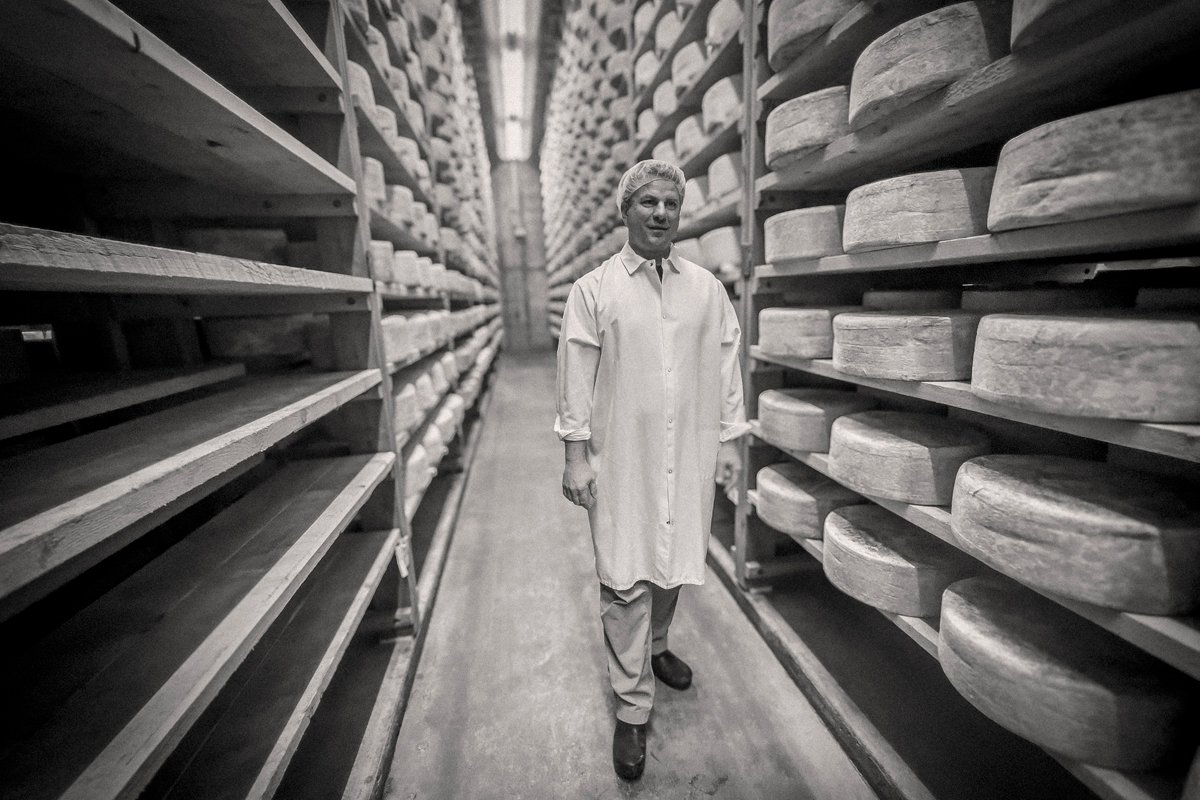
September 4, 2024
By paying top dollar for milk and sourcing within 15 miles of its creamery, Jasper Hill supports an entire community.
September 3, 2024
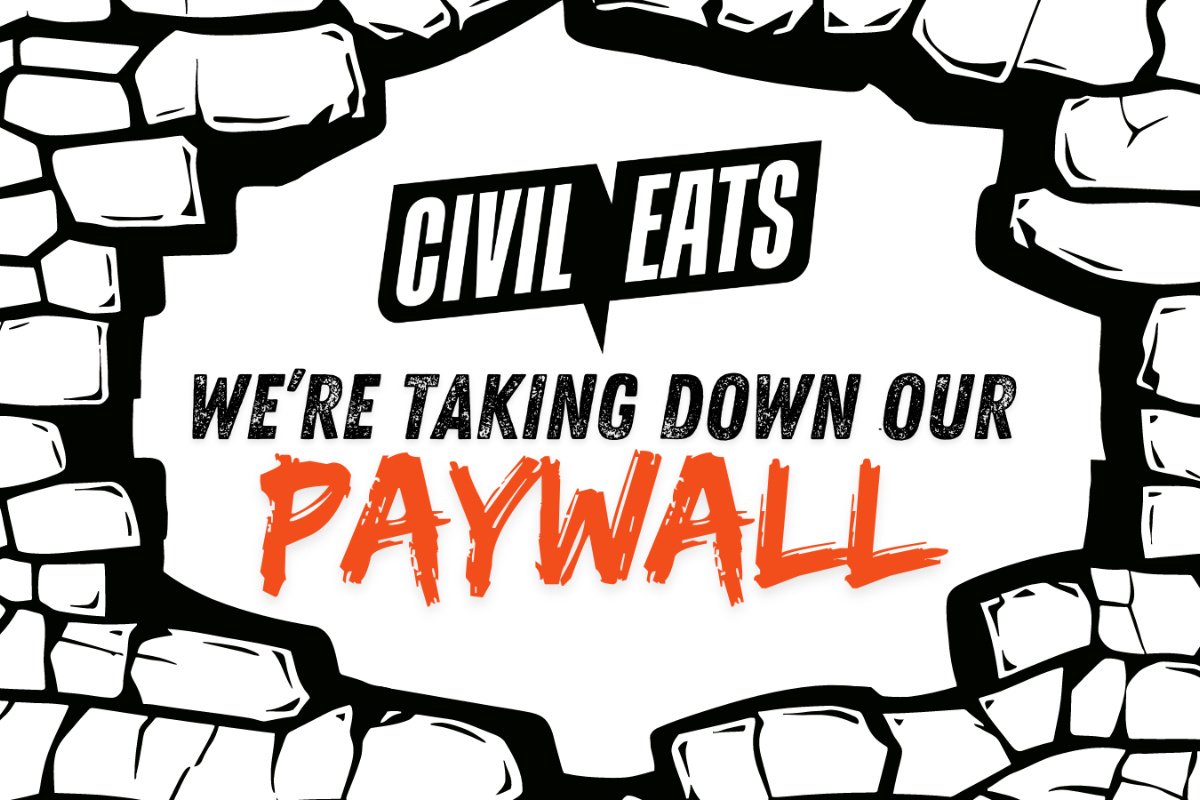
August 27, 2024

August 26, 2024
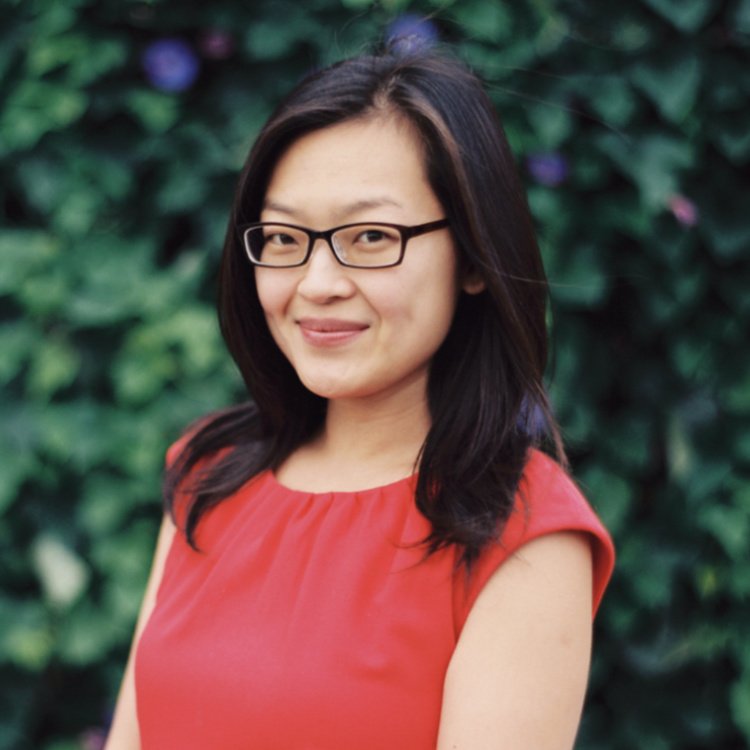
August 12, 2024
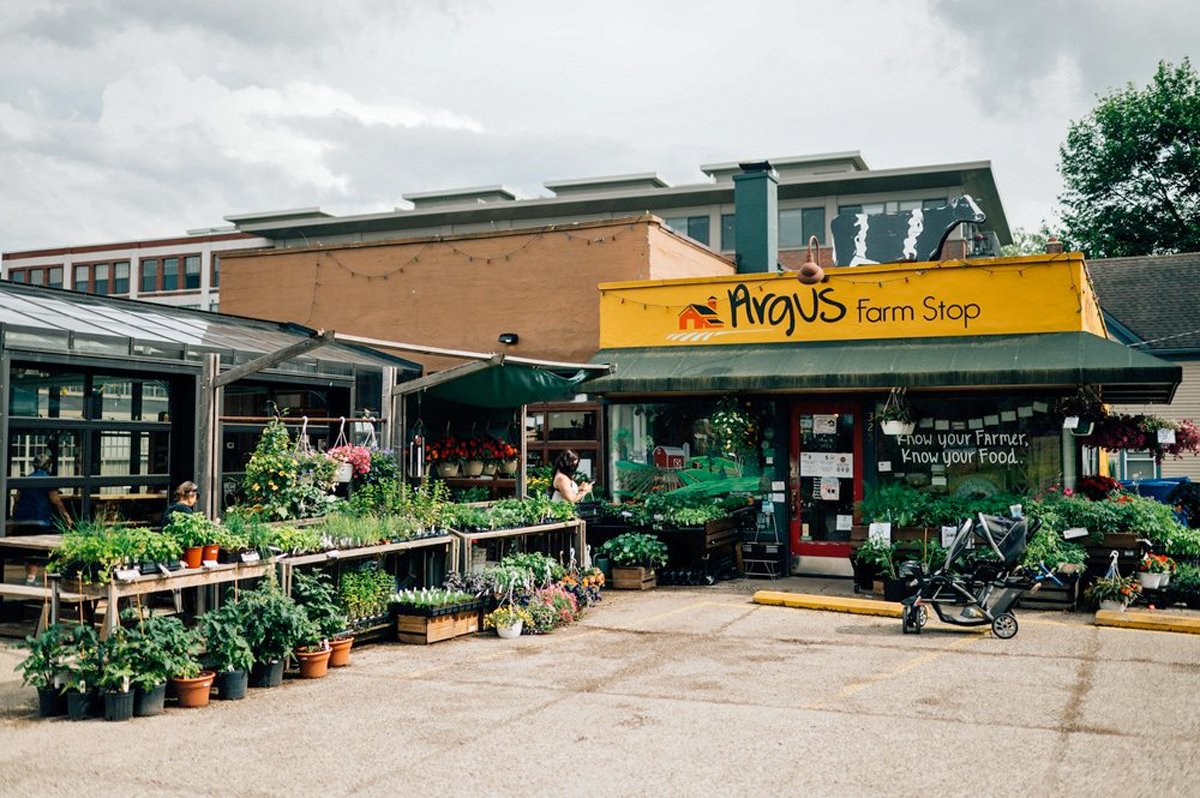
Like the story?
Join the conversation.